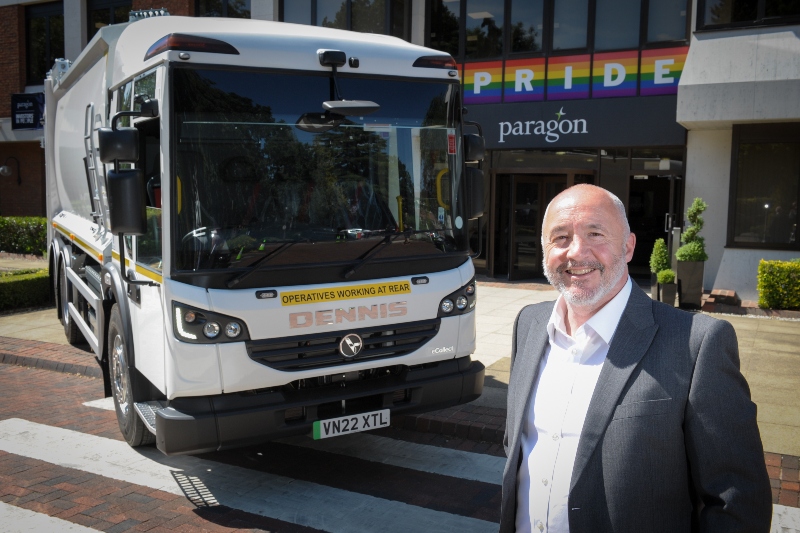Exeter is set to welcome three new electric refuse collection vehicles as part of the local authority’s efforts to reduce the levels of noise and air pollution in the city.


On 1 July, the three Dennis Eagle eCollect 27t electric dust carts will go to work collecting the city’s waste in an important step for Exeter City Council’s efforts to achieve net zero by 2030.
The vehicles will be powered by the Water Lane Solar Park once it is completed this year.
The arrival of the electric bin lorries is thanks to the partnership of the city council and Specialist Fleet Services (SFS). A Northampton-based fleet management company and part of the Paragon Banking Group, SFS are the first UK contract hire company to install eCollect RCVs.
‘The decarbonisation of Exeter’s RCVs [refuse collection vehicles] is an important step in the rollout of commercial electric vehicles and SFS are proud to be the first contract hire company to install a of eCollects RCVs in the UK,’ said Bob Sweetland, managing director, SFS.
‘We are confident that the benefits of the new fleet will be appreciated by both crews and residents, and provides an excellent real-world example to other local authorities of what is now possible and how it can be achieved.’
Richard Taylor, sales and marketing Director, Dennis Eagle: ‘Congratulations to Specialist Fleet Services for being the first company to provide an eCollect fleet on contract hire. Exeter crews have already had the opportunity to trial the vehicle and the feedback was very positive, and we are delighted to see the vehicles going into service.
'We look forward to working with SFS in the future to help more councils across the UK improve air quality with our eCollect and have a bigger impact on climate change.’
Commenting on the delivery of the vehicles, Cllr David Harvey, Exeter City Council’s lead councillor for City Management, said: ‘The introduction of three brand new electric refuse collection vehicles into our fleet is fantastic news for Exeter and its residents. The vehicles are clean and quiet and are a vital step on our journey towards a carbon neutral City. When it is complete the new solar array at Water Lane will supply power to the vehicles further reducing the carbon impact.’